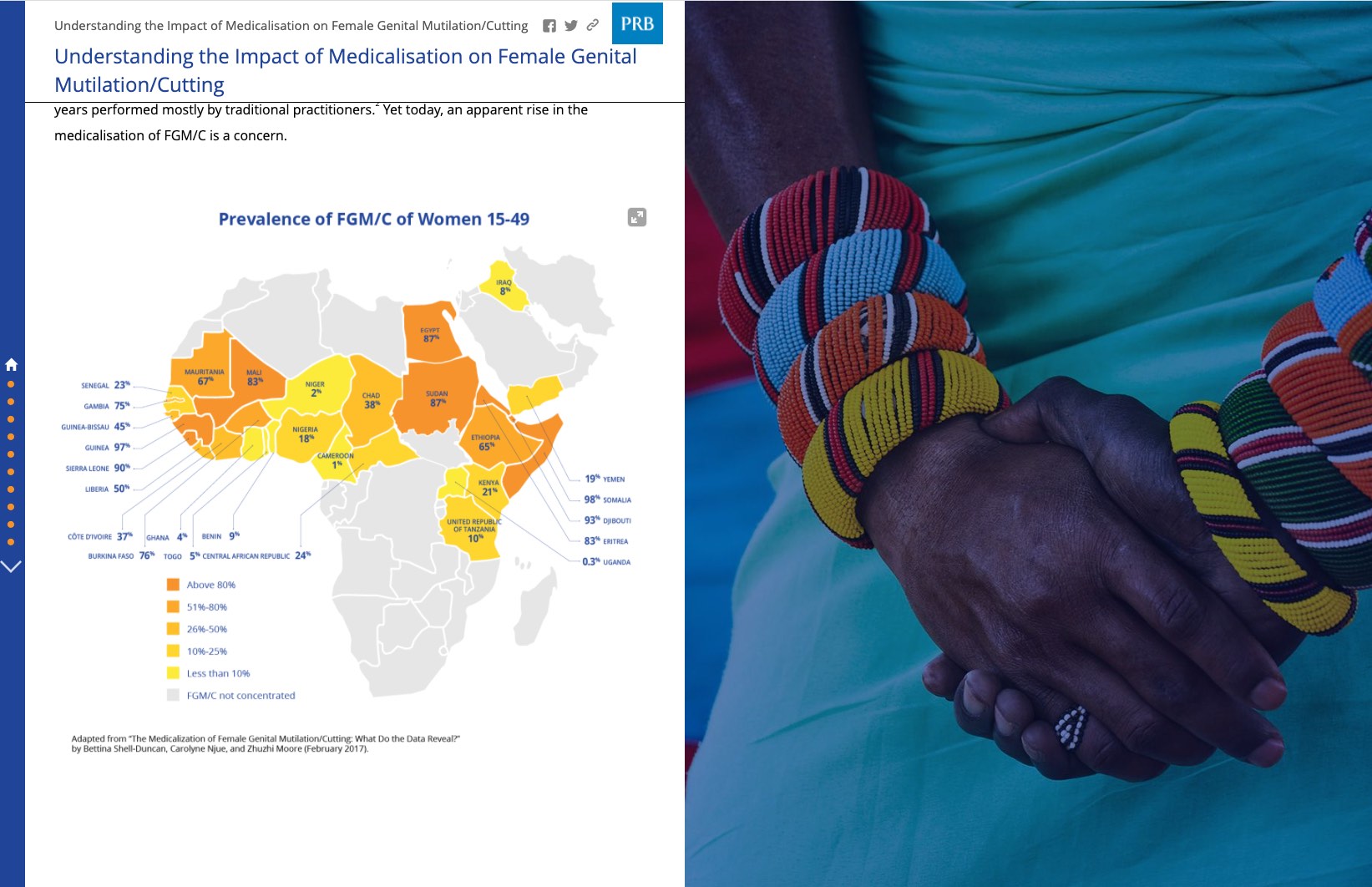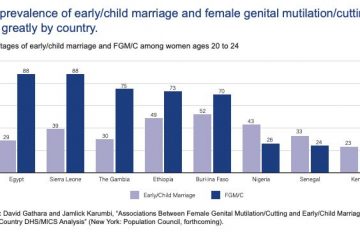Population Reference Bureau (PRB) is a core partner on the Population Council-led consortium Evidence to End FGM/C: Research to Help Girls and Women Thrive—a UKAID-funded research program to help end female genital mutilation/cutting (FGM/C) within one generation. Our role is to build the consortium’s capacity for research utilization and to develop innovative tools and products to improve how researchers communicate their findings about FGM/C to key decisionmakers.
PRB has developed a web feature, “Understanding the Impact of Medicalisation on Female Genital Mutilation/Cutting,” that outlines the best available information on medicalization. Medicalization refers to the practice of FGM/C by any category of health care provider. The web feature synthesizes quantitative data on trends over time, the relationship between medicalization and overall FGM/C prevalence, and qualitative data on provider and community perspectives. It will provide policymakers, advocates, and program managers with a better understanding of medicalization, how it varies by context, and key recommendations on how to address the practice.
Explore the web feature to:
- Understand the rates and trends of medicalization today.
- Explore FGM/C and the practice of medicalization in Kenya, Egypt, Sudan, and Nigeria through country profiles.
- Identify key steps that can be taken to end medicalization as well as FGM/C more broadly.
This web feature is based on the following five research reports:
- Bettina Shell-Duncan, Carolyne Njue, and Zhuzhi Moore, “The Medicalization of Female Genital Mutilation /Cutting: What Do the Data Reveal?” Evidence to End FGM/C: Research to Help Women Thrive (New York: Population Council, February 2017).
- Otibho Obianwu, Adetayo Adetunji, and Osasuyi Dirisu, “Understanding Medicalisation of Female Genital Mutilation/Cutting: A Qualitative Study of Parents and Health Workers in Nigeria,” Evidence to End FGM/C: Research to Help Women Thrive (New York: Population Council, January 2018).
- Nafisa Bedri et al., “Medicalisation of FGM/C in Sudan: Health Care Provider and Families’ Perspectives,” Evidence to End FGM/C: Research to Help Women Thrive (New York: Population Council, forthcoming).
- Omaima El-Gibaly and Mirette Aziz, “Medicalisation of Female Genital Mutilation/Cutting in Egypt: Perspectives of Health Care Providers and Mothers,” Evidence to End FGM/C: Research to Help Women Thrive (New York: Population Council, forthcoming).
- Samuel Kimani and Caroline W. Kabiru, “Understanding Medicalisation of Cutting Through Qualitative Research Among Families Using Medicalised FGM/C and Medical Professionals Providing Medicalised Services in Kenya,” Evidence to End FGM/C: Research to Help Women Thrive (New York: Population Council, forthcoming).


 ">
">

